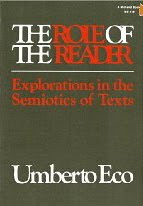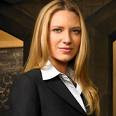
I'm reading My Favourite Poison by Anna Blundy - a rollicking crime/chick lit/dark comedy/spy story set in Egypt, featuring Faith Zanetti, a cynical English journalist who feels most at home in war zones and places where life is cheap and vodka is readily available. This is the fifth Faith novel, and they're all quite dark - suicides, wrongful imprisonment, the horrors of war, trafficking in children, mental illness, abandonment and grief - but have sufficient laugh lines scattered through the books to warrant being called 'rollicking' or 'darkly funny'. I've now bought four out of the five, having found the first (actually the fourth) in a dump-bin of discounted books, then the third, also on sale. apparently they don't sell well in Australia - we like wry or quirky humour, but maybe Blundy's plots are too grim and her jokes too Russian (see her novels for explanation if you are not familiar with the general tendency of Russian jokes to be really, really sad) for the average Australian reader. Blundy herself worked for many years as a journalist in Russia, the Middle East, Africa and America, and her father, also a journalist, was killed while working in El Salvador.

I've read all five (well, still reading the fifth) but have declined to buy the second because it's so unhappy; war orphans being sold into sex slavery is horrific, Faith's best friend committing suicide was devastating, but Faith herself having a nervous breakdown was just too much for me - maybe something to do with the first person narrative.
Anyways, I'd ordered My Favourite Poison and waited weeks for it, started it eagerly a couple of days ago, but was disgruntled because it just wasn't funny. Tonight, however, I'm chortling away at Faith's idea that she could disguise herself by wearing a red t-shirt instead of her usual white one (she's not entirely serious about that working).
So is the writing better at this point in the novel? I think it's pretty consistent, actually, and the reason I'm chuckling now is because I had a good talk this arvo with someone who asked me what I was so peeved about, and now that I've aired my grievances with sundry persons who have done Bad Things such as a) bill me more than they should have, b) be outrageously busy with other clients and not have time to fit me in for an appointment, and c) be cheerful when I'm feeling grumpy, I'm feeling quite relaxed and ready to enjoy Faith's travails.

Which confirms my theory (well, other people's too, but no way am I going to cite sources in this blog, unless I really feel like it, so for the purposes of this blog right now it's mine) that a novel is co-created by the reader, or at least, that an individual reader's experience is co-created by that reader - by the layers of cultural and literary knowledge they bring to it, their understanding of the genre, their understanding of individual words (or not), and, not least, their state of being and mood at the time.





